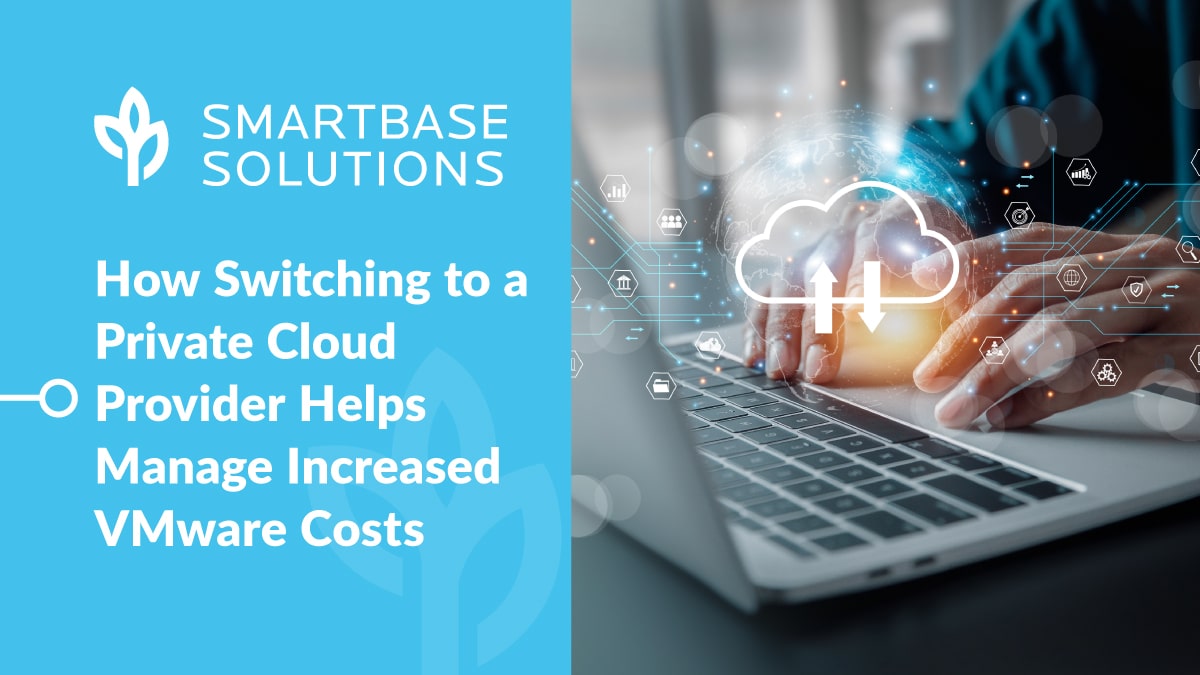For businesses feeling the pinch of rising VMware licensing fees, switching to a private cloud provider offers a viable solution to regain control over IT expenses.
With VMware’s recent change from a perpetual licensing model to a subscription model, businesses are re-evaluating their technology stacks as costs have increased from anywhere between 140-600%.
Why Move to a Private Cloud?
Unlike public cloud services (like AWS, Azure, or Google Cloud), a private cloud gives organizations more control over their infrastructure, security, and pricing, as it is hosted and managed either on-premises or by a third-party private cloud provider. Private cloud providers, also tend to offer better, more personalized and responsive service.
Cost Optimization and Predictable Pricing
One of the most significant advantages of moving to a private cloud provider is the potential for cost savings. By partnering with a provider who offers private cloud solutions, businesses can reduce or eliminate many of the hardware, licensing, and support-related costs associated with VMware. Private cloud providers often offer:
- Flat-rate pricing models: Private cloud providers offer predictable, subscription-based pricing that makes it easier to manage IT budgets.
- No hardware costs: By utilizing the provider’s infrastructure, you can avoid the capital expenditures associated with buying servers, networking equipment, and storage devices.
- Reduced licensing costs: Many private cloud providers offer customized VMware environments or alternatives that can be more cost-effective than traditional VMware licensing models.
Scalability and Flexibility
Private cloud solutions are inherently more flexible than on-prem VMware environments. In a private cloud, you can scale resources as needed, without being locked into rigid capacity planning based on physical hardware. Providers often offer a mix of dedicated servers, virtualized environments, and flexible storage options that allow you to scale up or down quickly based on your business needs.
For companies concerned about the rising costs of scaling their VMware environments, a private cloud provider can help mitigate those expenses. You may be able to get the same benefits of virtualization and workload management that VMware offers, without the complexity of purchasing additional licenses or upgrading on-prem hardware.
Enhanced Security and Compliance
Private cloud providers typically offer enhanced security measures, including:
- Built-in redundancy and backup solutions
- Advanced threat detection and mitigation tools
- Compliance with industry standards (such as GDPR, HIPAA, PCI-DSS)
By shifting to a private cloud, you can offload many of these security responsibilities to the provider, ensuring your environment is up-to-date with the latest security patches and compliant with any regulatory requirements—often at a lower cost than managing it in-house.
Streamlined Management and Automation
Managing a VMware environment requires specialized knowledge, with teams needing to maintain infrastructure, handle upgrades, and ensure that everything runs smoothly. Many private cloud providers integrate automation and management tools into their services, simplifying operations and reducing administrative overhead.
Private cloud providers offer:
Automation of routine tasks: Automating updates, monitoring, backups, and scaling can free up your IT staff to focus on more strategic initiatives.
Integrated management platforms: Many providers offer dashboards and centralized control planes that give you a single view of your entire infrastructure, allowing for more efficient monitoring and troubleshooting.
Avoiding Vendor Lock-In with Hybrid Cloud Options
VMware’s proprietary tools and licensing models can make it difficult to migrate workloads in or out of the ecosystem without incurring significant costs, creating vendor lock-in. A private cloud provider with hybrid cloud capabilities allows you to run workloads both on-premises and in the cloud, giving you more flexibility in how you manage your infrastructure.
If you have an existing VMware environment that’s too expensive to scale, a hybrid cloud solution allows you to offload some workloads to the provider’s cloud, helping you optimize costs while maintaining compatibility with your existing VMware setup.
The rising costs of VMware licensing, hardware, and management are forcing many organizations to rethink their IT strategies. Switching to a private cloud provider offers a cost-effective, scalable, and secure alternative while still enabling virtualization and cloud management. By leveraging the right private cloud infrastructure, businesses can optimize their IT costs, improve flexibility, and reduce complexity—all without sacrificing performance.
As with any major infrastructure shift, careful planning and choosing the right private cloud provider are essential. However, for many businesses, the potential savings and operational benefits are well worth the transition.




